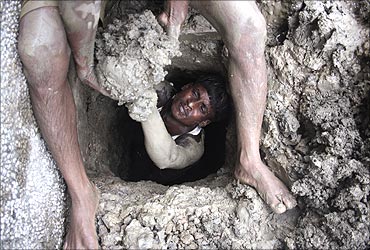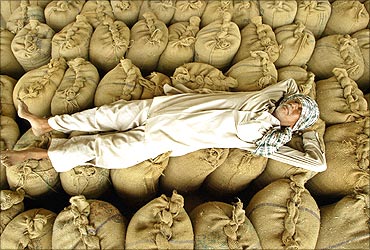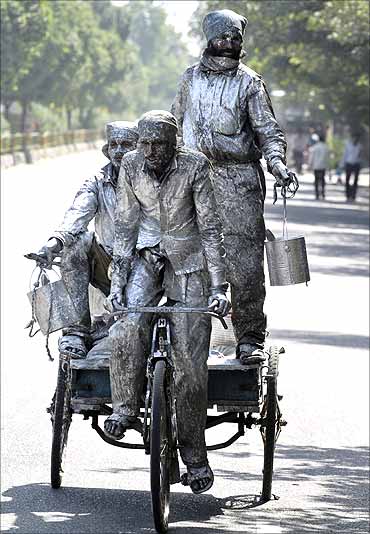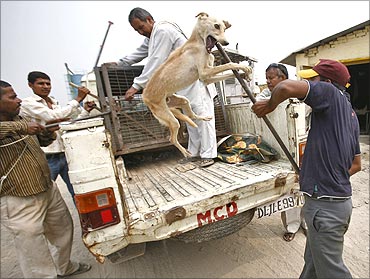 | « Back to article | Print this article |
No laws for poor contract workers!
The growth of the country may well be riding on the frail shoulders of the ubiquitous contract worker who is increasingly being favoured over regular workers.
Click NEXT to read on...
No laws for poor contract workers!
For the worker, it does not mean anything other than more labour. It usually means poor wages and an existence in a grey area where no labour laws on entitlements exist.
Click NEXT to read on
No laws for poor contract workers!
Contract labour is so popular in industry that the law seems out of place. Hence, the government is thinking in changing the law itself.
The new law will try a new strategy: Putting contract labour on a par with regular labour. Minister of State for Labour Harish Rawat recently said the law was being made only to tackle the evils that come with contract labour.
Click NEXT to read on
No laws for poor contract workers!
At Allied Nippon, where an executive was killed by angry workers last week, the 900 contract workers earn a fraction of what the regular employees get.
Many have been in service for decades and still were being threatened with dismissal.
A worker in the bonding department, for instance, earns Rs 12,000 per month, while the contract worker doing the same job gets Rs 3,200. The contract worker puts in 12 hours, while others work eight hours.
Click NEXT to read on
No laws for poor contract workers!
In another factory in the area, workers said they worked 12 hours all seven days of the week and were paid Rs 3,000 per month.
Click NEXT to read on
No laws for poor contract workers!
The law provides for ESI, PF and bonus benefits for contract workers. The law does not say that contract workers can be made to work 12 hours every day and denied leave.
What is missing is a machinery to ensure that the workers are not deprived of the entitlements promised under the law.
Click NEXT to read on
No laws for poor contract workers!
The Indian Labour Conference, which has representatives from employer groups, worker groups and the government, will take up the issue at its annual meeting this month for the second consecutive year.
Click NEXT to read on
No laws for poor contract workers!
Rawat would hear none of this. Having a law giving equal rights to contract workers is the best way to protect them against exploitation, he says.








